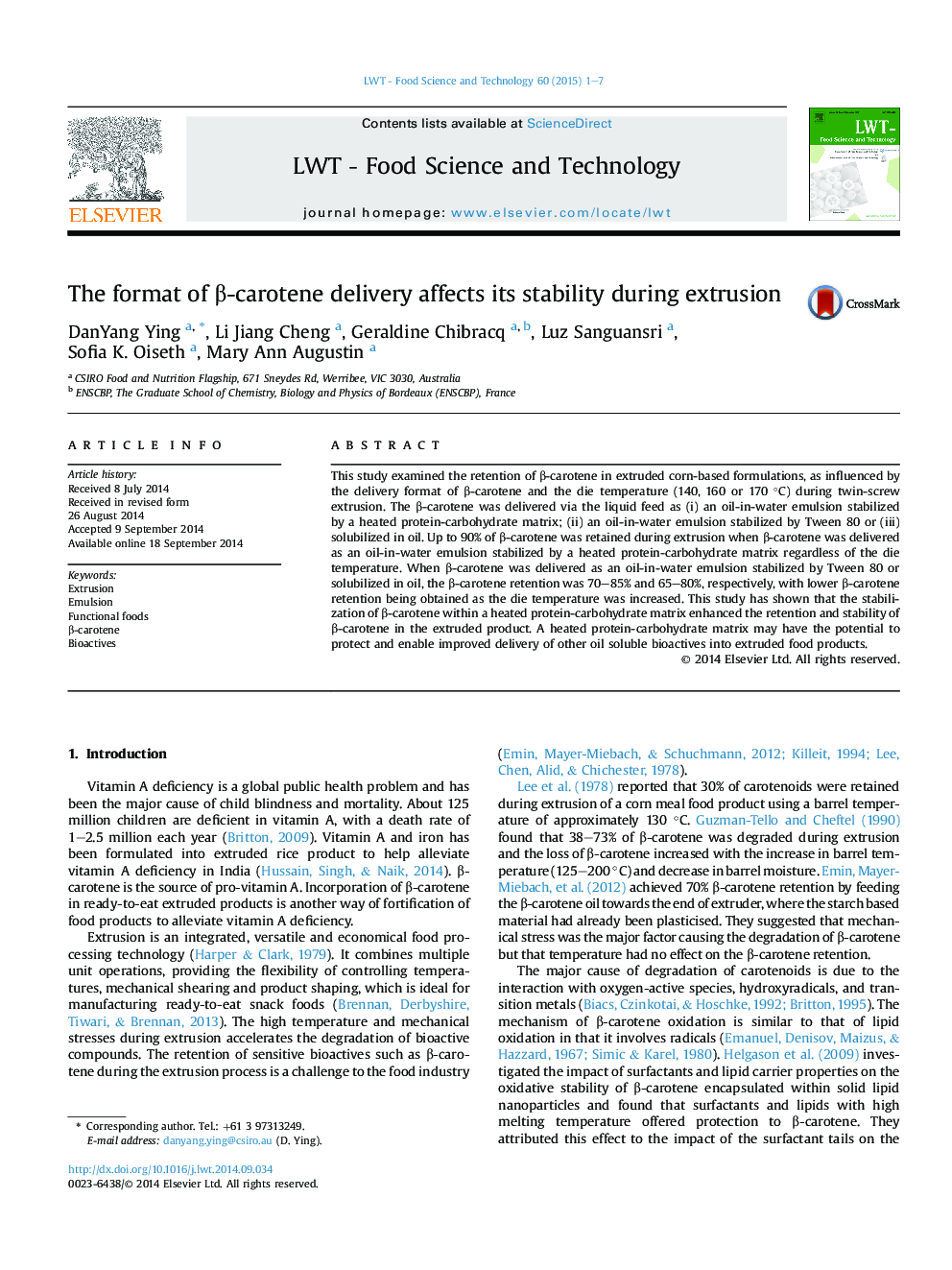| Article ID | Journal | Published Year | Pages | File Type |
|---|---|---|---|---|
| 6402779 | LWT - Food Science and Technology | 2015 | 7 Pages |
Abstract
This study examined the retention of β-carotene in extruded corn-based formulations, as influenced by the delivery format of β-carotene and the die temperature (140, 160 or 170 °C) during twin-screw extrusion. The β-carotene was delivered via the liquid feed as (i) an oil-in-water emulsion stabilized by a heated protein-carbohydrate matrix; (ii) an oil-in-water emulsion stabilized by Tween 80 or (iii) solubilized in oil. Up to 90% of β-carotene was retained during extrusion when β-carotene was delivered as an oil-in-water emulsion stabilized by a heated protein-carbohydrate matrix regardless of the die temperature. When β-carotene was delivered as an oil-in-water emulsion stabilized by Tween 80 or solubilized in oil, the β-carotene retention was 70-85% and 65-80%, respectively, with lower β-carotene retention being obtained as the die temperature was increased. This study has shown that the stabilization of β-carotene within a heated protein-carbohydrate matrix enhanced the retention and stability of β-carotene in the extruded product. A heated protein-carbohydrate matrix may have the potential to protect and enable improved delivery of other oil soluble bioactives into extruded food products.
Related Topics
Life Sciences
Agricultural and Biological Sciences
Food Science
Authors
DanYang Ying, Li Jiang Cheng, Geraldine Chibracq, Luz Sanguansri, Sofia K. Oiseth, Mary Ann Augustin,
